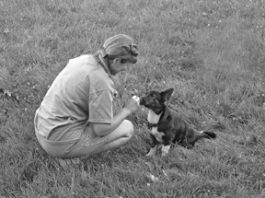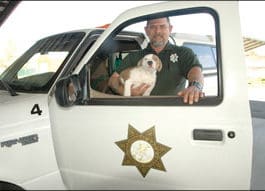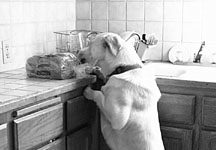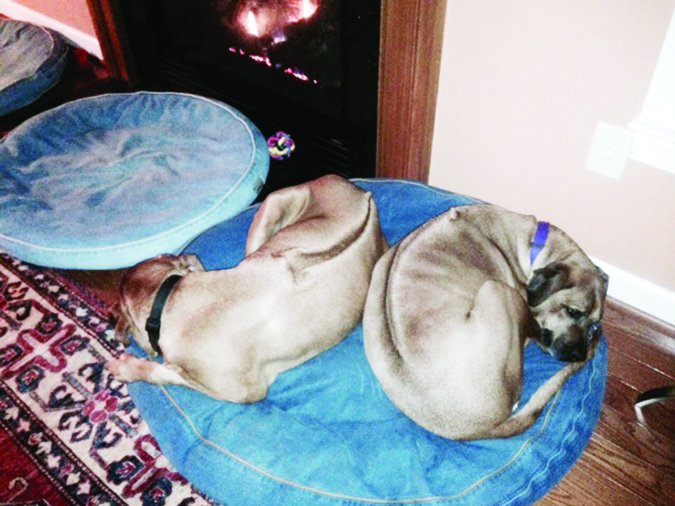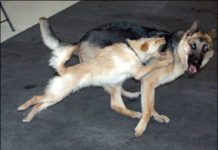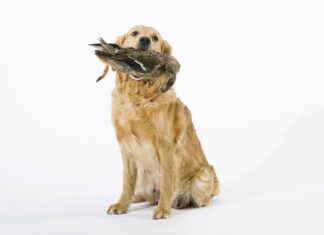Foster a Dog for More Holiday Cheer
Give the gift of love by sheltering a foster dog or volunteering at your local animal shelter this season. Whole Dog Journal editor Nancy Kerns recounts why, even in the most trying of times, there's no greater feeling than opening your home to a life in need.
How To Choose The Best Shelter Dog for Your Family
You’re getting a dog from the shelter? Good for you! We’ll tell you how to choose the best dog for your family. There are a number of steps you need to take before you even set foot inside the shelter door. Doing some pre-visit homework can greatly increase your odds of finding the perfect pup. Caution: If all dogs on a particular shelter’s website are described the same way (sweet, friendly, loving) then the shelter probably doesn’t know the personalities of their dogs very well, or chooses not to be forthcoming with the information. This would be a good shelter to avoid.
Too Mean To Keep?
I have a serious problem with my six-year-old neutered male Vizsla. He was a high strung, but good tempered dog for the first three years of his life. Something seemed to snap after that. He is loving and affectionate most of the time, but he gets aggressive when family members leave the kitchen (he and our other dog are limited to the kitchen and family room). He barks, snaps at them, and snags clothes with his teeth. He has never chomped down and bitten anyone, but he has scratched people with a tooth.
Adoptee Arrives With Baggage
establishing safe spots for them on either side of the bed; they were compelled to stay on their own cozy beds with a six-foot leash fastened to an eyebolt in the wall.
Dr. Bain also suggested that we use muzzles on both Jasmine and Sassy when they were together. She recommended basket-type muzzles
Training Foster Dogs to Walk Properly On-Leash
My husband and I acquired two (temporary) canine foundlings last week. Julie is a five-month-old purebred Akita puppy that we rescued from our local shelter, where her cage card identified her as a Shepherd/Husky mix. Her prospects for adoption were dismal, given that the shelter euthanizes 85-90 percent of incoming animals. Our second castaway, Princess, is a three-year-old Beagle mix. My husband and I were driving down a busy highway when we spotted her, hunched in the middle of the road, defecating while cars swerved around her on both sides. Princess was wearing a collar and tag, but her owners had moved, and she ended up staying at our house for several days while we tracked down their new phone number and location.
A Kelpie For The Millers
My husband and I agreed that we'd like another Australian Kelpie. Both of our two prior Kelpie girls were exceptional dogs, and we're hoping for a repeat experience. Kelpies are rare enough that we know that haunting our local shelters for one is pretty futile. Given our sheltering background, the subject of purchasing from a breeder never came up.
Creating a Great Dog Foster Home
happy in a "forever home" where he is loved
Gold Paw Dog Training Program
The Gold Paw Program was developed by the Humane Society of Washington County, Maryland, (HSWC) to help identify and work with dogs who have the potential to be someone’s beloved companion, but need some help getting there. Gold Paw volunteers undergo extensive training in canine behavior so they are prepared to provide these dogs with the help they need.
Canine Adoption Advice
Adopting a new dog is exciting, wonderful, and a happy time. But bringing a new dog home is also an uncertain time. What will your dog be like? Will he be a good match for your family? Will he be everything you hoped for? Bringing a new dog into the home can also, quite frankly, be a rather shocking time for you and your family. Suddenly your life will be compounded by the energy and needs of the new family member. Everyone will go through an adjustment – dogs and people alike. What can you do to ensure that you and your new dog will settle into a long happy life together?
Tips on Adopting a Senior Dog
When my husband asked me to come to the shelter where he worked to meet the 8-year-old Australian Shepherd he had fallen in love with and wanted to adopt, of course I said yes. When Paul first met Missy, she threw herself on her back at his feet, and he was hooked. When I saw her striking red merle coat, her stunning odd eyes" (one brown
Finding The Best Animal Shelters
Adopting a homeless dog should be a joyful process, and the beginning of a rewarding relationship. I highly recommend it. But there are pitfalls. (You knew there were going to be pitfalls, didn’t you?) Not every animal rescuer, rescue group, or shelter that is well-intentioned can back up good intentions with self-discipline, genuine animal expertise, and the organizational and people skills necessary to do a good job of placements and follow-up.
Adopting a New Dog
You've adopted a new adult dog into your family. Congratulations! As you search for information to help you help your new furry family member adjust to this difficult transition in his life (change is hard!), you may discover that there are lots of resources for new puppy owners, but for new adult-dog owners, not so much. Where do you begin? We've compiled a list of suggestions to help make life with your new dog easier for all concerned. His first few weeks with you set the tone for your lifelong relationship. If you follow these time-tested protocols, you're more likely to experience smooth sailing - or at least smoother sailing - with your recycled Rover, who may arrive at your door with some baggage from his prior life experiences. We hope you've made wise plans and decisions before your new canine pal sets paws through your door for the first time. But even if he's already camped out on your sofa, it's not too late to play catch-up with many of the suggestions that follow.



